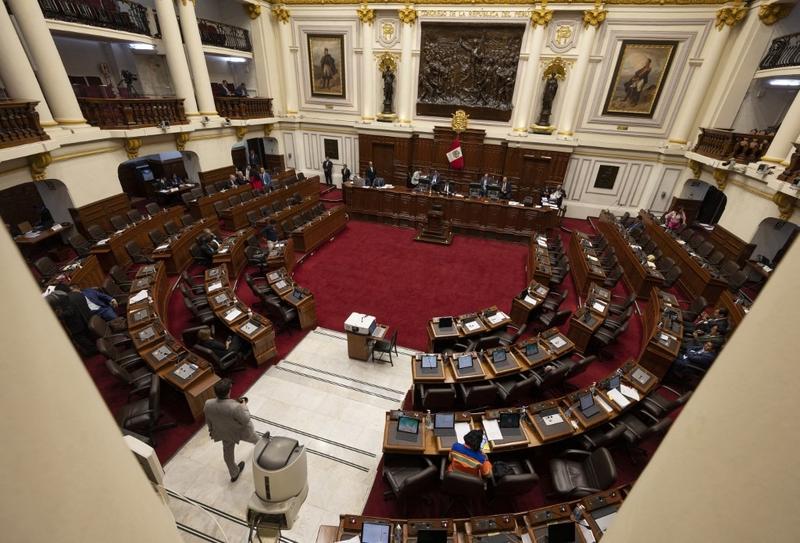 General view of the Peruvian Congress chamber in session in Lima on Feb 1, 2023. (PHOTO / AFP)
General view of the Peruvian Congress chamber in session in Lima on Feb 1, 2023. (PHOTO / AFP)
LIMA - Peru's Congress shelved President Dina Boluarte's bill to bring elections forward to 2023 on Friday night, leaving a major demand of demonstrators whose protests have rocked the country in recent weeks up in the air.
Boluarte had unveiled a bill to bring elections forward to October 2023 on Wednesday in a bid to calm the deadly protests. A fractured Congress has repeatedly failed to agree on its own bill after weeks of political infighting.
Eight weeks of anti-government protests have resulted in 48 people killed in clashes between demonstrators and security forces, mostly in Peru's copper-rich south
A congressional commission took up the President's bill Friday afternoon but shelved it on a technicality before it even reached debate. It cannot now be taken up again until July, when a new legislative year starts.
Rapid new elections have been a key demand of protesters since former left-wing President Pedro Castillo was ousted and jailed in December after attempting to illegally dissolve Congress.
ALSO READ: Peru's Congress fails to agree over holding early elections
Eight weeks of anti-government protests have resulted in 48 people killed in clashes between demonstrators and security forces, mostly in Peru's copper-rich south.
Congress had already agreed to bring forward elections originally scheduled for 2026 to 2024 but that did not halt the protests.
One bill to call elections this year by the right-wing Popular Force party failed Wednesday after days of closed door negotiations failed to yield a consensus.
Peru Libre, Castillo's party, submitted a separate bill for early elections and a non-binding referendum for a new constitution but that was voted down Thursday night.
READ MORE: Protester dies in Lima as Peru's political crisis continues
Other bills to bring elections forward are still in the legislative track but none have drawn consensus.
Protesters around Peru have blocked highways with trees, boulders and tires, taken over regional airports and burned buildings, impacting goods transport, business and the operation of some key mines in the world's No. 2 copper producer.


